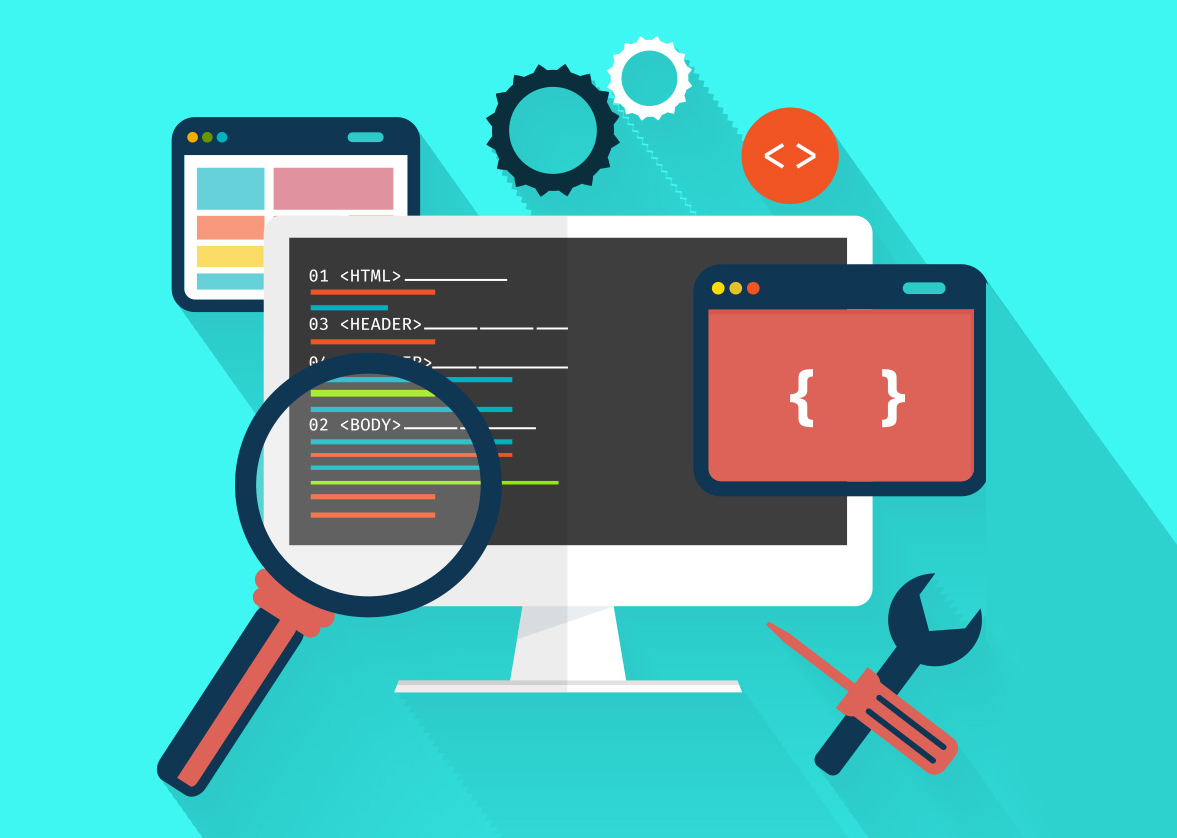The Genesis: Writing Your First Line of Code
Embarking on the journey of learning to code can be both exhilarating and intimidating. The first step in this process is understanding fundamental programming concepts, which form the building blocks of any programming language. Whether you are interested in web development, data analysis, or software engineering, grasping concepts such as variables, loops, and conditionals is crucial. These foundational elements will help demystify how coding works and enable you to write your first line of code.
Choosing the right programming language is essential for beginners. Popular languages such as Python, JavaScript, and Ruby offer simplicity and ease of understanding. Python, known for its readable syntax, is particularly recommended for those new to programming. JavaScript, essential for web development, facilitates interaction with web pages, making it an excellent choice for aspiring front-end developers. Ruby, while slightly more complex, offers a friendly community and robust frameworks for building applications. Ultimately, the choice of language should align with your personal interests and career aspirations.
Setting up the necessary tools for writing code involves downloading and installing an Integrated Development Environment (IDE) or a simple text editor. Many beginners opt for platforms that provide an interactive coding experience, such as Codecademy or freeCodeCamp. These platforms not only offer structured lessons but also provide instant feedback, helping to reinforce learning. Resources such as online forums, coding boot camps, and local coding groups can further serve as valuable support systems as you navigate your early coding experiences.
Common hurdles such as debugging errors or grasping abstract concepts may challenge beginners. Maintaining a persistent mindset and practicing coding regularly will enhance your understanding and mastery of basic skills. As you progress, writing small programs or scripts will solidify your knowledge and prepare you for more complex coding tasks. By taking these initial steps, you are laying a strong foundation for a successful career in the IT field.
Building Skills and Expanding Knowledge
Establishing a solid foundation in programming is crucial for any aspiring IT professional. This foundation encompasses not just basic programming languages, but an understanding of essential concepts such as data structures, algorithms, and fundamental software development principles. These topics are the building blocks that enable an individual to tackle complex problems and design effective solutions. A comprehensive grasp of these concepts is essential for anyone wishing to excel in the competitive IT job market.
A variety of pathways exist for budding programmers to cultivate their skills and expand their knowledge. One popular approach is participating in coding boot camps, which are intensive programs designed to teach programming skills in a concentrated timeframe. These boot camps often focus on practical skills and provide opportunities for collaboration and networking, making them a valuable option for hands-on learners. Alternatively, individuals may opt to take online courses, which offer flexibility and the ability to learn at one’s own pace. Numerous platforms provide extensive materials covering programming languages, development frameworks, and industry best practices.
Self-study remains a viable option for those who thrive in independent learning environments. Utilizing books, online resources, and tutorials, individuals can engage with the material at their own convenience. However, theoretical knowledge alone is insufficient for success; practical experience is equally important. Therefore, internships, side projects, and contributions to open-source initiatives play a critical role in reinforcing what has been learned. By applying knowledge in real-world contexts, programmers can hone their skills, demonstrate their competency, and build a portfolio that showcases their abilities to potential employers.
In conclusion, a strategic approach to skill-building and knowledge expansion is essential for those entering the IT field. The combination of structured learning, self-driven exploration, and practical experience positions aspiring programmers for success in their future careers.
Creating a Strong Portfolio and Resume
A strong portfolio and resume are vital components in successfully landing your first IT job. These tools serve to effectively showcase your skills, projects, and professional experiences, allowing potential employers to gauge your capabilities. A compelling portfolio should include a range of projects that exemplify your technical skills, creativity, and problem-solving capabilities. Ideally, it should demonstrate a variety of programming languages, frameworks, and technologies you are proficient in, reflecting your versatility as an IT professional.
To enhance your portfolio’s visibility and accessibility, consider utilizing platforms like GitHub. This code repository not only acts as a personal showcase but also fosters a sense of community among developers. By uploading your projects to GitHub, you can make it easier for recruiters and hiring managers to review your work. When presenting your projects, make sure to include detailed descriptions, functionality, and the technologies used. You may also want to incorporate visual elements, such as screenshots or demonstration videos, to enhance the appeal and provide better context.
When it comes to crafting your resume, it is paramount to tailor it specifically for each IT position you apply for. Start by emphasizing relevant skills that correspond with the job description. Include both hard skills, such as programming languages and software proficiency, and soft skills, like communication and teamwork. Highlight any relevant experiences—this could be internships, coursework, or personal projects—that align with the position. Additionally, consider using bullet points for clarity, ensuring easy readability. Covering these aspects effectively will enable you to stand out in a competitive job market and present yourself as a compelling candidate for IT roles.
Navigating the Job Market: Applying for Your First IT Job
Embarking on a career in the IT industry can be both exciting and daunting. For those seeking their first IT job, understanding how to navigate the job market effectively is crucial. Start by identifying various job openings through online platforms, including job boards, company websites, and recruitment agencies. Websites like LinkedIn, Indeed, and Glassdoor can provide valuable insights into available positions and employer expectations.
Networking plays a significant role in securing an IT position. Engaging with professionals in the field can lead to valuable connections and recommendations. Attend industry events, workshops, and meetups to meet potential employers and fellow job seekers. Additionally, leveraging social media platforms such as LinkedIn can help expand your network and showcase your skills and aspirations to a wider audience.
Preparation for interviews is essential in making a strong impression. Familiarize yourself with common IT interview questions, which often cover both technical abilities and problem-solving scenarios. Employers may inquire about your experience with specific programming languages, troubleshooting approaches, or system designs. Practicing with a mentor or utilizing online resources can enhance your confidence and performance.
After an interview, following up with a thank-you note can demonstrate your professionalism and enthusiasm for the position. A concise message expressing gratitude for the opportunity to interview and reiterating your interest can leave a lasting impression on hiring managers.
As technology evolves, maintaining a commitment to continuous learning is vital. Engage with online courses, certifications, or volunteer projects to stay updated on emerging trends and industry standards. Persistence and a positive mindset will serve you well as you navigate job search challenges, paving the way for a successful career in IT.


No responses yet